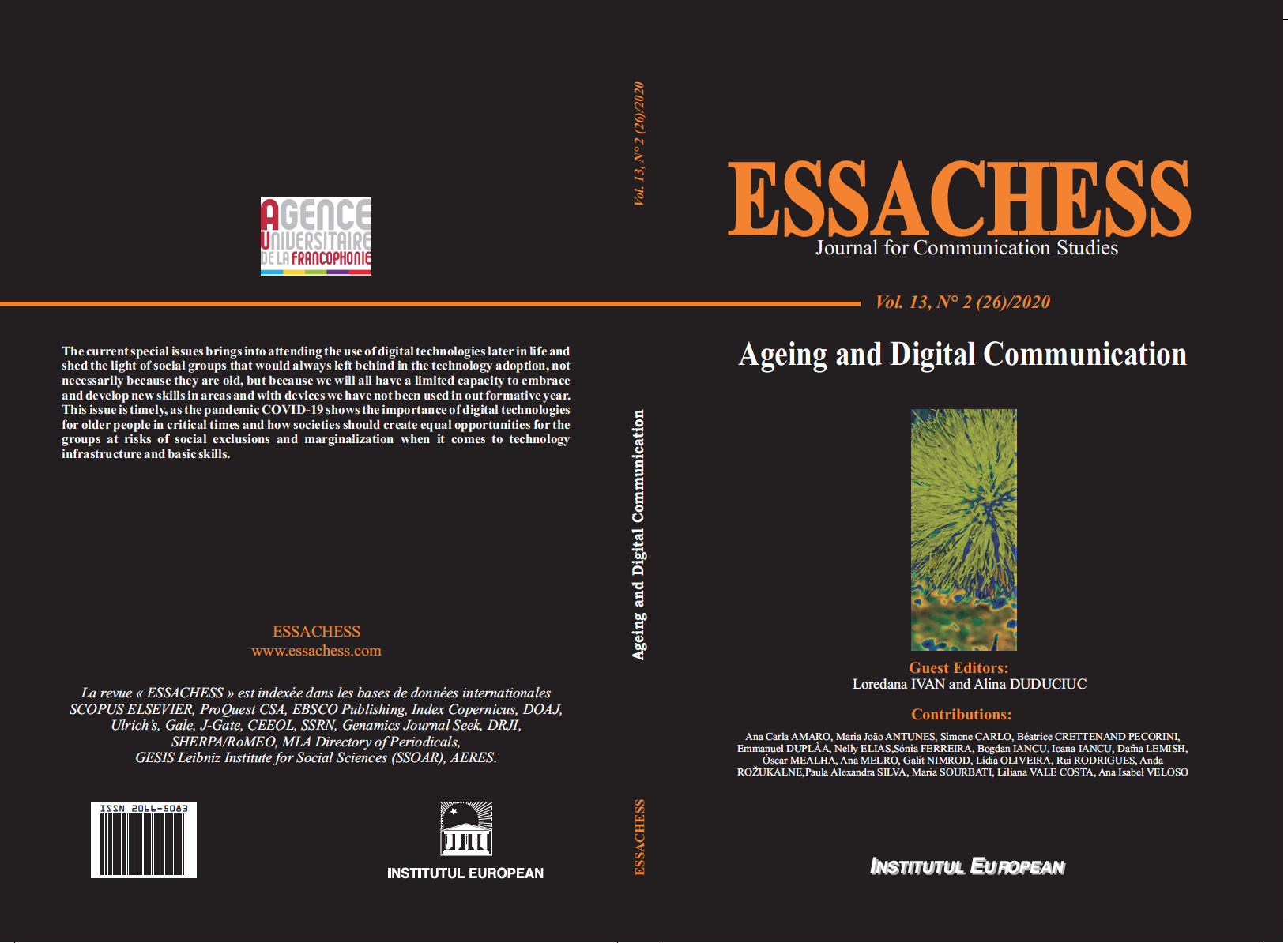Perception of Media and Information Literacy among Representatives of Mid–Age and Older Generations: the Case of Latvia
Perception of Media and Information Literacy among Representatives of Mid–Age and Older Generations: the Case of Latvia
Author(s): Anda RožukalneSubject(s): Politics / Political Sciences, Politics, Social Sciences, Economy, Education, Psychology, Media studies, Civil Society, Public Administration, Communication studies, Sociology, Government/Political systems, Welfare systems, Political behavior, Political economy, Political psychology, Politics and communication, Comparative politics, Cultural Anthropology / Ethnology, Culture and social structure , Theory of Communication, Adult Education, Higher Education , State/Government and Education, Social psychology and group interaction, Social development, Social differentiation, Family and social welfare, Gerontology, Rural and urban sociology, Social Informatics, Sociobiology, Sociology of Culture, EU-Approach / EU-Accession / EU-Development, Social Norms / Social Control, ICT Information and Communications Technologies, Sociology of Politics, Inclusive Education / Inclusion, Sociology of Education
Published by: ESSACHESS
Keywords: age; generation; media and information literacy; media politics; Latvia
Summary/Abstract: Academic interests on the impact of media on individuals’ lives often highlight differences in knowledge across generations. The spread of disinformation and its potential impact on societies has added a new dimension to this process - the need to continuously improve media and information literacy (MIL). Thus, the older generations face greater challenges, as they need to acquire new skills more rapidly and on a larger scale. This article analyses interrelations between encouragement measures (implemented by media policy makers) and media literacy perception of middle-aged and older population in Latvia (aged 55 to 75). The research employs data of two national representative surveys (May 2019, 1017 respondents; August 2019, 1005 respondents) that include data on respondents’ perception of MIL and test their media literacy skills. The theoretical background of this paper is supported by literature that discusses age and generations in context of media and technology use (Aroldo, 2014), and the Ideological model of literacy (Street, 1984; 1994). Data shows that a higher proportion of middle-aged and older respondents, compared to other age groups, are not interested in MIL issues and evaluate their MIL competences as rather low, but in the everyday practice their ability to recognize and evaluate information is equivalent to that of other age groups.
Journal: ESSACHESS - Journal for Communication Studies
- Issue Year: 13/2020
- Issue No: 26 (2)
- Language: English

